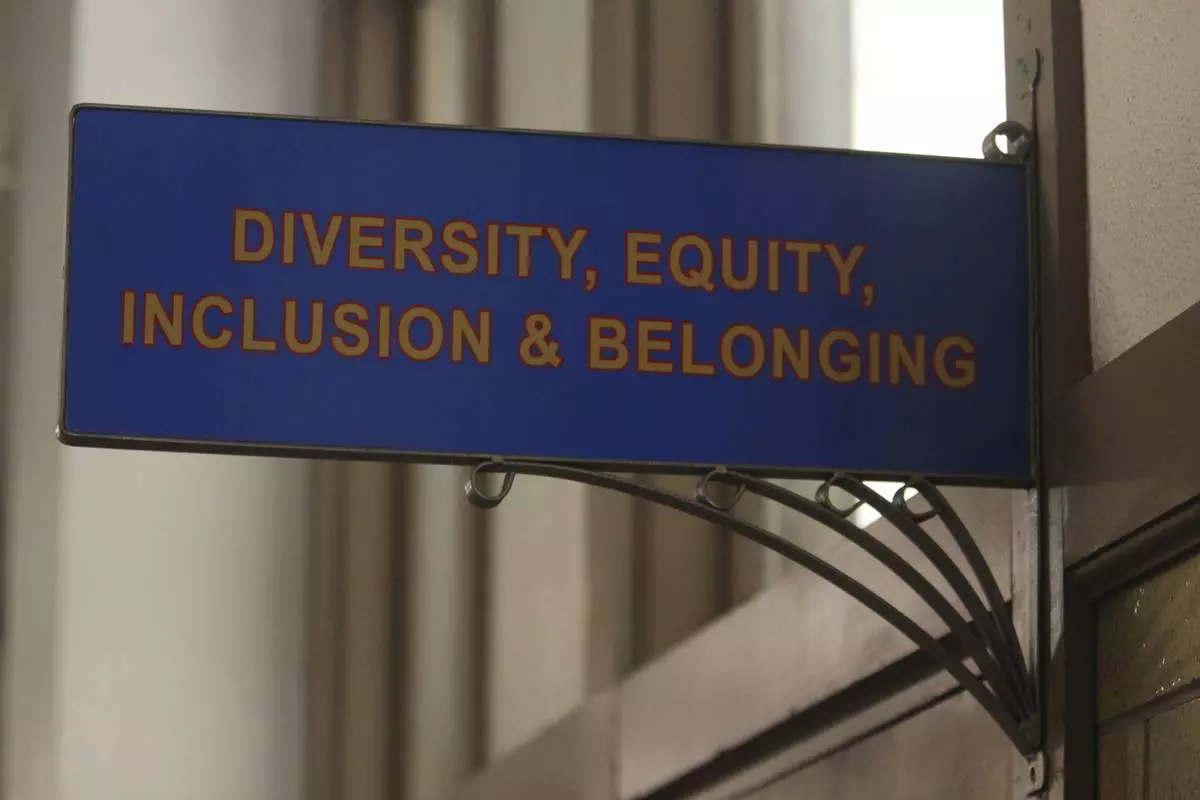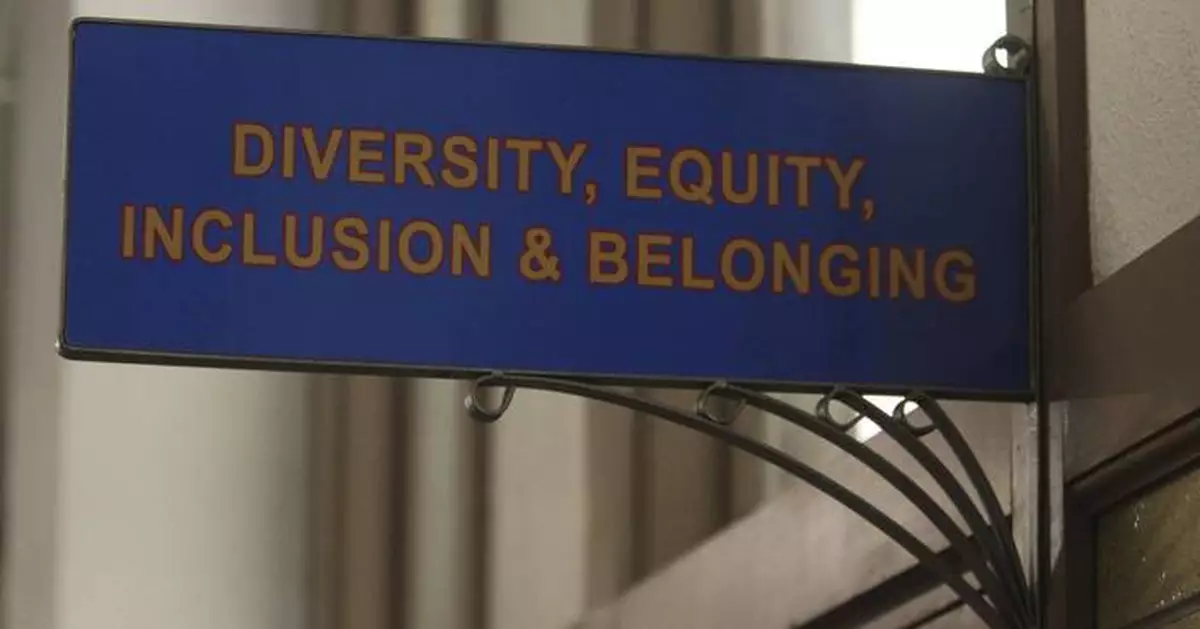TOPEKA, Kan. (AP) — State universities in Kansas would be banned from requiring prospective students, potential hires and staffers seeking promotion to disclose their views on diversity initiatives under a policy change being considered by the state’s higher education board.
The Kansas Board of Regents was set to discuss the policy change during a meeting Wednesday at Fort Hays University. The proposal would revise policy language that currently emphasizes “multiculturism and diversity” on campus and replace it with language barring universities from requiring statements “pledging allegiance to, support for or opposition to” diversity, equity and inclusion initiatives in applications for admission, hiring or promotion — without setting any penalties for violations.
The proposed change comes as the state’s Democratic governor faces pressure to enshrine the anti-DEI policy in law following Republicans' approval of a bill in the Legislature that would put the same policy into state law. That bill allows a fine of up to $10,000 for a violation and includes provisions in the next state budget to withhold nearly $36 million from the state universities unless they publicly confirm that they don't have such requirements. Gov. Laura Kelly has until Friday to act on the bill and until April 25 to act on the budget provisions.
“I don’t think we ever would have had a state law if this was their policy at the outset,” Republican state Sen. J.R. Claeys, the author of the budget provisions, said ahead of Wednesday's board discussion.
Republicans in at least 20 states have sought to limit DEI initiatives, arguing that they are discriminatory and enforce a liberal political orthodoxy. Alabama and Utah enacted new anti-DEI laws this year, and a ban enacted in Texas last year has led to more than 100 job cuts on University of Texas campuses.
Claeys, who is also an adviser to GOP state Attorney General Kris Kobach, another DEI critic, said a new regents policy is a positive step because it ensures that all of the universities are following the same guidelines.
But, he added, “I wouldn’t expect them to enact any enforcement on themselves.”
Others say that such policies reflect “a gross misrepresentation” of the purpose behind DEI statements from applicants.
“The intended purpose is to provide an opportunity for prospective employees to reflect on their experiences and how those experiences complement the mission and values of an institution to support a diverse campus community,” said Paulette Granberry Russell, president of the National Association of Diversity Officers in Higher Educations, in an email statement.
It's unclear how widespread required DEI-related statements on applications are, but GOP lawmakers have said they are responding to complaints and applications they’d seen online. Granberry Russell said she was unaware of any university expecting students, job applicants or employees to actually “pledge allegiance to diversity.”
A legislative audit released in February said that just 1.6% of spending by Kansas’ six state universities — $45 million — went to DEI initiatives but noted that each university defined DEI differently. Besides initiatives traditionally seen as DEI, such as training and recruiting, resources included food pantries for poor students and services for military veterans and disabled students.
Kelly told reporters after a Tuesday event that she has not had time to review the anti-DEI bill. While the bill specifically mentions diversity, equity and inclusion, it also says universities cannot require a statement about “any political ideology or movement.”
Last year, Kelly used her power under the state constitution to veto individual budget provisions to scuttle anti-DEI provisions in the current budget, and GOP lawmakers did not have the two-thirds majorities necessary in both chambers to override her actions.
But Kelly also signed legislation last year that bars Kansas officials from using environmental, social and governance factors in investing public funds or deciding who receives government contracts.
“Sometimes those bills, you know, they really don’t do much, and the universities can continue to function the way they need to function,” Kelly said Tuesday. “So, I need to figure out or look at how impactful that will be.”

This photo from Friday, April 12, 2024, shows the door to the Office of Diversity, Equity, Inclusion and Belonging in the main administration building on the main University of Kansas campus in Lawrence, Kan. Republican legislators in Kansas and other states are trying to restrict diversity, equity and inclusion initiatives in higher education. (AP Photo/John Hanna)

Kansas Gov. Laura Kelly answers questions from reporters following an event at the Shawnee County, Kan., jail, Tuesday, April 16, 2024, in Topeka, Kan., as her communications coordinator, Grace Hoge, watches behind her. Kelly has not made a decision on whether she'll sign or veto a bill that restricts diversity, equity and inclusion initiatives on state university campuses. (AP Photo/John Hanna)

Students walk down Jayhawk Boulevard, the main street through the main University of Kansas campus, Friday, April 12, 2024, in Lawrence, Kan. The Kansas Board of Regents, which oversees higher education, has drafted a new policy against requiring diversity, equity and inclusion statements on applications for students, job seekers and staff promotions. (AP Photo/John Hanna)

This photo from Friday, April 12, 2024, shows the sign above the door to the Office of Diversity, Equity, Inclusion and Belonging inside the main administration building on the main University of Kansas campus in Lawrence, Kan. Republican lawmakers across the U.S. are seeking to restrict diversity initiatives on colleges campuses, arguing that they enforce a liberal orthodoxy. (AP Photo/John Hanna)










